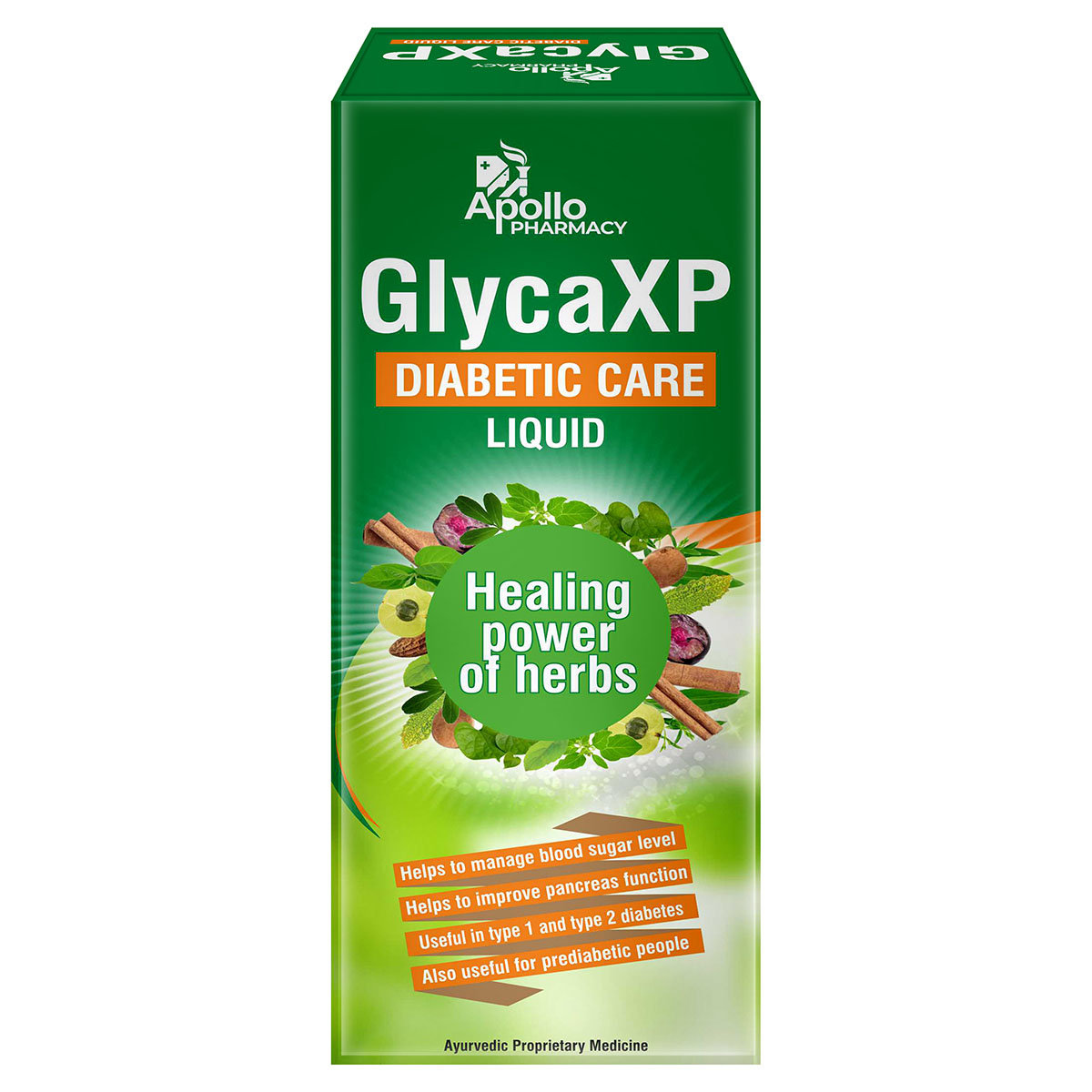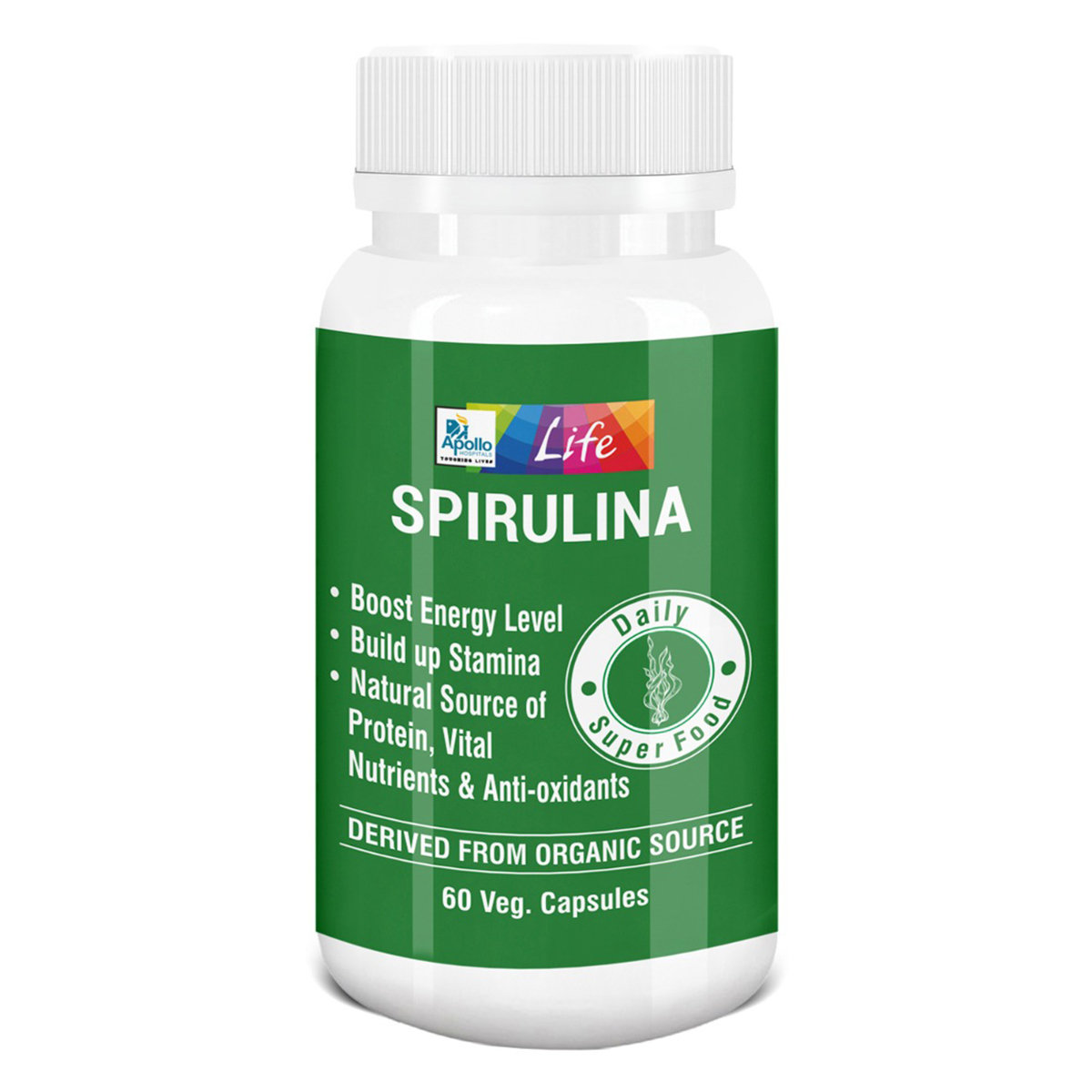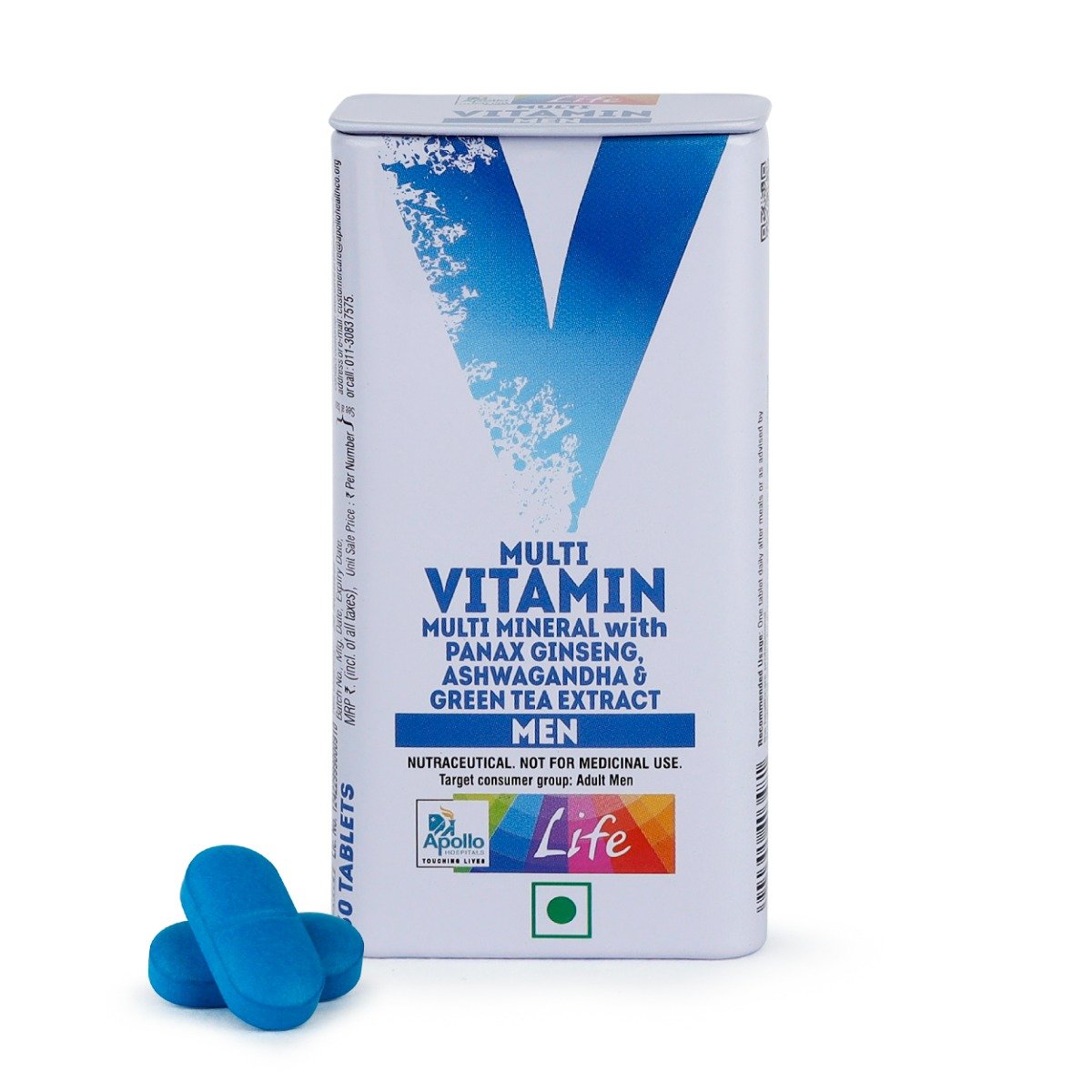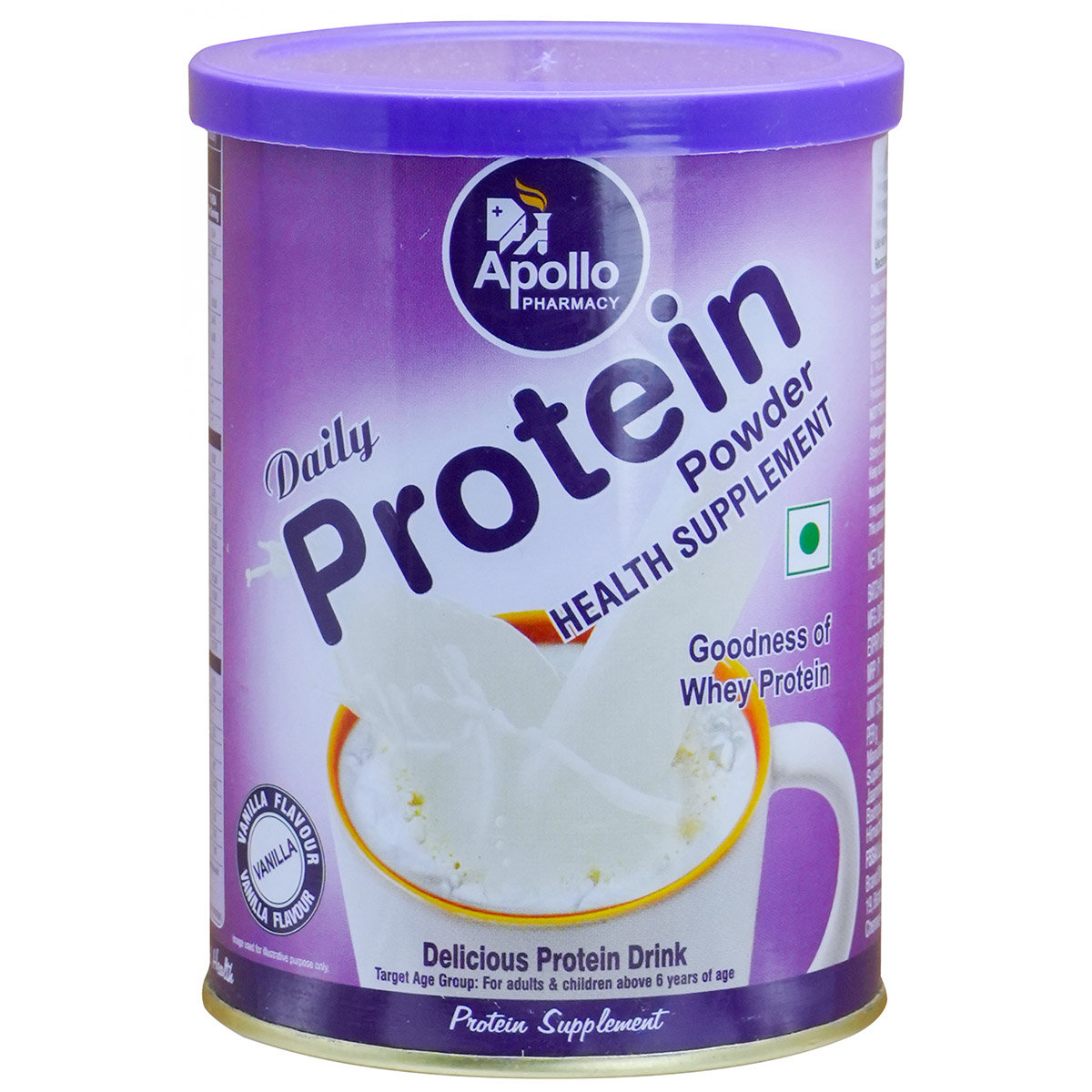Thiamin Tablet 15's
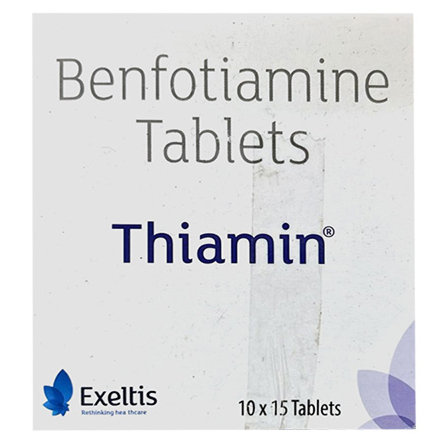
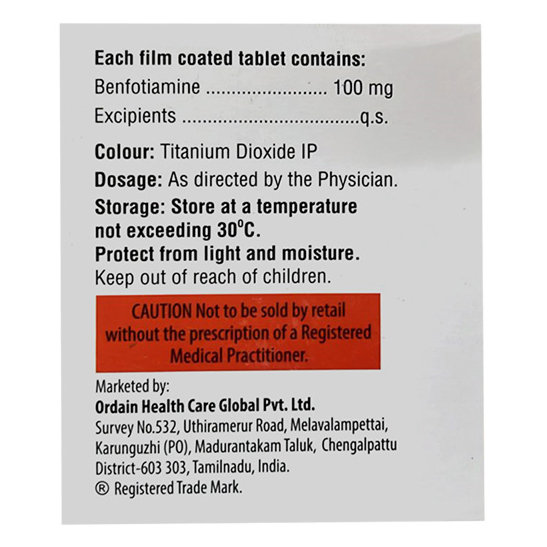
Selected Pack Size:15
15 ₹207.9
(₹13.86 per unit)
In Stock
10 ₹173.7
(₹17.37 per unit)
In Stock
MRP ₹231
(Inclusive of all Taxes)
₹34.6 Cashback (15%)
Thiamin Tablet is used to treat and prevent vitamin B1 deficiency. It is also useful in improving mental health symptoms in people addicted to alcohol and pain caused by diabetic neuropathy (nerve damage due to diabetes). It is also used to treat Beriberi disease, a condition caused by prolonged vitamin B1 deficiency. It contains Benfotiamine, a synthetic form of Vitamin B1 or Thiamine, which is converted into thiamine by the body. It helps in delivering essential nutrients to the nerves. It may cause common side effects such as nausea, diarrhoea, skin rash and stomach discomfort. Before taking this medicine, you should tell your doctor if you are allergic to any of its components or if you are pregnant/breastfeeding, and about all the medications you are taking and pre-existing medical conditions.
Know Your Delivery Time
Provide Delivery Location

Secure Payment

India's Most Trusted Pharmacy

Genuine Products
Composition :
Manufacturer/Marketer :
Consume Type :
Return Policy :
Expires on or after :
About Thiamin Tablet
Thiamin Tablet is a vitamin and dietary supplement primarily used to treat and prevent vitamin B1 deficiency. Thiamin Tablet is also useful in improving mental health symptoms in people addicted to alcoholism and pain caused by diabetic neuropathy (nerve damage due to diabetes).
Thiamin Tablet contains Benfotiamine, which helps treat such nutritional deficiencies by providing Vitamin B1 supplementation. The body turns benfotiamine into thiamine. Thiamine helps deliver essential nutrients to nerves.
Common side effects of Thiamin Tablet include nausea, diarrhoea, skin rash and stomach discomfort. These side effects are not familiar to everyone and vary from person to person. If you notice any side effects that are not manageable, please consult your doctor.
Please tell your doctor if you are allergic to Thiamin Tablet or its components. It is essential to let your doctor know if you are pregnant, planning to conceive or a breastfeeding mother. Thiamin Tablet is not recommended for children below 12 years of age.
Uses of Thiamin Tablet
Thiamin Tablet is used in the treatment of Vitamin B1 deficiency, beriberi disease, diabetic neuropathy and alcohol dependence. The detailed uses of Thiamin Tablet are as follows:
- Energy Metabolism: Thiamin Tablet plays an essential role in converting carbohydrates into energy, making it particularly vital for athletes and individuals engaged in energy-demanding activities.
- Nerve Function: Thiamin Tablet supports healthy nerve cells and is frequently utilised in the treatment of neuropathies and other nerve-related disorders.
- Cardiovascular Health: Thiamin Tablet is crucial for heart health, ensuring proper cardiac function and metabolic processes within heart cells.
- Preventing Neurological Disorders: Thiamin Tablet is commonly suggested to individuals with alcohol dependence to prevent conditions like Wernicke-Korsakoff syndrome, a severe neurological disorder.
- Digestive Health: Thiamin Tablet promotes the production of essential enzymes, aiding digestion, improving appetite, and supporting better digestion.

Have a query?
Directions for Use
- Thiamin Tablet can be taken with or without food as advised by your doctor.
- Follow your doctor's instructions on the dosage and timing of this medication to ensure safety.
- Swallow it as a whole with a glass of water.
- Do not chew, crush, or break it.
Medicinal Benefits
- Thiamin Tablet contains Benfotiamine, which is used to treat and prevent vitamin B1 deficiency.
- It is a lab-made version of vitamin B1, also called thiamine.
- Thiamin Tablet is a dietary supplement that improves mental health symptoms in people addicted to alcoholism and pain caused by diabetic neuropathy (nerve damage due to diabetes).
- Thiamine is used to treat beriberi, a condition caused by prolonged vitamin B1 deficiency.
- The body turns benfotiamine into thiamine. Thiamine helps deliver essential nutrients to nerves.
- Thiamin Tablet may also improve symptoms of Alzheimer's disease and arthritis. However, there is no scientific evidence to support these uses.
How Thiamin Tablet Works
Storage
What if I have taken an overdose of Thiamin Tablet
Drug Warnings
- Let your doctor know if you use any other medications, including vitamins, before starting Thiamin Tablet .
- Let your doctor know if you have any liver or kidney diseases before starting Thiamin Tablet .
- Please consult your doctor know if you are pregnant, planning to conceive or are a breastfeeding mother.
- Thiamin Tablet is not known to affect driving; however, if you notice any symptoms, please seek medical advice.
- Thiamin Tablet is not recommended in children below 12 years of age.
Drug-Drug Interactions
Drug-Drug Interactions
Login/Sign Up
Drug-Food Interactions
Drug-Food Interactions
Login/Sign Up
Diet & Lifestyle Advise
- Include Vitamin B1-rich foods like beans, legumes, dairy products (such as yoghurt), eggs, meat, poultry, fish, nuts, seeds, thiamine-enriched breakfast cereals and whole grains in your diet
- Taking vegetables like acorn squash, asparagus, beet greens, brussels sprouts, and spinach can help you cope with Vitamin B1 deficiency.
- Manage stress, eat healthily, drink plenty of water, exercise regularly and get plenty of sleep.
- Avoid or limit alcohol and caffeine intake.
Habit Forming
Therapeutic Class
RX
Benthyme 100 mg Tablet 10's
McRiyavin Bio Research
₹75.5
(₹6.8 per unit)
50% CHEAPERRX
Bentex Tablet 10's
Theo Pharma Pvt Ltd
₹82.5
(₹7.43 per unit)
46% CHEAPERRX
B-One Plus Tablet 10's
Pharma Fabrikon
₹88
(₹7.92 per unit)
42% CHEAPER
Alcohol
Caution
Avoid or limit taking alcohol while using Thiamin Tablet to prevent any adverse reactions.
Pregnancy
Consult your doctor
Thiamin Tablet is only recommended for use during pregnancy by your doctor when benefit outweighs the risk.
Breast Feeding
Consult your doctor
Please consult your doctor before taking Thiamin Tablet ; your doctor will decide whether Thiamin Tablet can be taken by breastfeeding mothers or not.
Driving
Consult your doctor
It is unknown whether Thiamin Tablet affects driving, however, if you notice any symptoms, please consult your doctor.
Liver
Consult your doctor
Let your doctor know if you have any history of liver diseases before using Thiamin Tablet .
Kidney
Consult your doctor
Let your doctor know if you have any history of kidney diseases before using Thiamin Tablet .
Children
Unsafe
Thiamin Tablet is not recommended in children below 12 years of age.
Heart
Caution
Some studies show Thiamin Tablet may have cardioprotective effects. However, please consult your physician if you have any heart-related problems, before taking Thiamin Tablet .
Geriatrics
Safe if suggested
Thiamin Tablet is safe for use in geriatric patients if recommended by the physician. Your doctor will decide te dose and duration of medicine.
FAQs
Thiamin Tablet is used to treat Vitamin B1 deficiency, beriberi disease, diabetic neuropathy and alcohol use disorder.
Thiamin Tablet is a dietary supplement and contains Benfotiamine. It is a lab-made version of vitamin B1, also called thiamine. The body turns benfotiamine into thiamine. Thiamine helps deliver essential nutrients to nerves and treats vitamin B1 deficiency and beriberi.
Vitamin B1 deficiency occurs when your body does not have adequate levels of Vitamin B1 or Thiamine. This deficiency is commonly found in alcoholics, people with poor diets and those with malabsorption conditions. It is also common in children with congenital heart disease. People undergoing dialysis may also develop vitamin B1 deficiency.
Thiamin Tablet is safe to use during diabetic conditions since it shows positive effects on conditions caused by low blood sugar levels. Your doctor will advise on how you should use Thiamin Tablet if you have diabetes.
Thiamin Tablet does not usually cause any allergies. However, if you notice any side effects like a skin rash, please consult your doctor. Also, some Vitamin B1 tablets may contain components like lactose monohydrate. If you are lactose intolerant, let your doctor know.
Thiamin Tablet (Benfotiamine) and Thiamine (Vitamin B1) are closely related but not identical. Thiamin Tablet is a lipid-soluble derivative of Thiamine, designed to enhance absorption and bioavailability. While Thiamine is the natural, water-soluble form of Vitamin B1, Thiamin Tablet is mainly used to address specific health concerns, such as vitamin B1 deficiency, diabetic neuropathy, and alcoholism-related nerve damage.
Thiamin Tablet is a vitamin supplement used to treat and prevent Vitamin B1 deficiency, including conditions like alcoholism-related nerve damage, and diabetic neuropathy. It's also effective in managing mental health symptoms and preventing Beriberi disease. Benfotiamine converts to thiamine in the body, delivering essential nutrients to nerves.
Thiamin Tablet may cause weight gain in some cases, but not everyone who takes it will experience it. A healthy lifestyle, including a balanced diet and regular exercise, can help minimise the risk of weight gain.
Thiamin Tablet is generally considered safe, but like any supplement, it can cause some side effects in a few cases. Possible side effects may include skin rash, nausea, stomach discomfort, diarrhoea, hair loss, weight gain, body odour, and a decrease in blood pressure. Please note that these side effects are relatively rare and do not affect everyone who takes it. If you experience any persistent or worsening side effects, it's essential to consult your doctor for guidance.
Country of origin
Manufacturer/Marketer address
In the Spotlight
Customers Also Bought
Disclaimer
Author Details
We provide you with authentic, trustworthy and relevant information
Buy best Health & Nutrition products by
SPECIALITY SUPPLEMENTS
Minerals
VITAMINS AND MINERALS
VITAMINS
ADULT NUTRITION
OTHER SUPPLEMENTS
Protein Supplements
OMEGA & FISH OIL
WEIGHT LOSS
KIDS NUTRITION
SEXUAL HEALTH SUPPLEMENTS
BONE & JOINT SUPPLEMENTS
AMINO ACIDS
WELLNESS DRINKS
WEIGHT GAIN
WOMEN HEALTH SUPPLEMENTS
SINGLE VITAMIN
HEALTH FOODS
IMMUNE HEALTH SUPPLEMENTS
MULTIVITAMINS
CARDIAC SUPPLEMENTS
GASTRIC DISORDERS SUPPLEMENTS
WEIGHT LOSS AND WEIGHT GAIN
Others
AYUR
HIMALAYAN ORGANICS
WELLBEING NUTRITION
HEALTHVIT
HORLICKS
GNC
PURE NUTRITION
MUSCLEBLAZE
ENSURE
FAST&UP
PATANJALI
PROTINEX
SHELCAL
Optimum Nutrition
SUGAR FREE
Pediasure
CENTRUM
PROHANCE
SWISSE
APOLLO PHARMACY
PENTASURE
Himalaya
RITEBITE
GROVIVA
Muscletech
OZIVA
QNT
APOLLO LIFE
COMPLAN
THE VITAMIN COMPANY
VOGUE WELLNESS
BEAUTYWISE
NEAT
BODYWELL
CUREVEDA
REVITAL
CELEVIDA
ORIGIN
RASAYANAM
THE GOOD BUG
HEALTHKART
CALCIMAX
BOURNVITA
EQUAL
HEALTH OK
ESSENTIAL
ISOPURE
ULTRA
WEST COAST
B-PROTIN
MAXVIDA
GALACT
HEALTHYR-U
NESTLE RESOURCE
NEUHERBS
PRESURE
SUPRADYN
THE WHOLE TRUTH
A TO Z
ARTH
Diataal
INJA
MAXIRICH
NUTRASWISS
Power Gummies
VIVAMOM
ZINCOVIT
BAIDYANATH
Cipcal
ESPERER
ORGANIC INDIA
TORGEM
ULTRA D3
ZANDU
ZEST
BOOST
CALIBAR
ECOPROT
FITSPIRE
IN YOU
Livogen
MY FITNESS
Performance Inspired
THREPTIN
BIOVIT
CHARAK
ENERZAL
Evion
FRESUBIN
LACTARE
LAMINO
MACPROT
MANNA
NURTURE
OSTOCALCIUM
PRO-PL
PROTOTAL
VIDAVANCE
Amocare
Vlado Sky Enterprise Pvt Ltd
Sun Pharmaceutical Industries Ltd
Intas Pharmaceuticals Ltd
Abbott India Ltd
Macleods Pharmaceuticals Ltd
Alkem Laboratories Ltd
Mankind Pharma Pvt Ltd
West Coast Pharmaceuticals Pvt Ltd
Emcure Pharmaceuticals Ltd
Lupin Ltd
Meyer Organics Pvt Ltd
Eris Life Sciences Ltd
Nutritionalab Pvt Ltd
Akumentis Healthcare Ltd
Torrent Pharmaceuticals Ltd
Cipla Ltd
Alniche Life Sciences Pvt Ltd
British Biologicals
La Renon Healthcare Pvt Ltd
Micro Labs Ltd
Leeford Healthcare Ltd
Zuventus Healthcare Ltd
Pharmed Ltd
Corona Remedies Pvt Ltd
Dr Reddy's Laboratories Ltd
East West Pharma India Pvt Ltd
Modi Mundipharma Pvt Ltd
Bright Lifecare Pvt Ltd
ABBOTT HEALTHCARE PVT LTD
Koye Pharmaceuticals Pvt Ltd
Apex Laboratories Pvt Ltd
Aristo Pharmaceuticals Pvt Ltd
Indchemie Health Specialities Pvt Ltd
Zydus Healthcare Ltd
DR Johns Lab Pharma Pvt Ltd
Bioceutics Inc
Hindustan Unilever Ltd
Vasu Organics Pvt Ltd
Fourrts India Laboratories Pvt Ltd
Zydus Cadila
Alembic Pharmaceuticals Ltd
USV Pvt Ltd
Elder Pharmaceuticals Ltd
ZYDUS WELLNESS LIMITED
FDC Ltd
Herbs Nutriproducts Pvt Ltd
Morepen Laboratories Ltd
Guardian Healthcare Services Pvt Ltd
Indoco Remedies Ltd
Zee Laboratories Ltd
TTK Healthcare Ltd
Troikaa Pharmaceuticals Ltd
Pulse Pharmaceuticals
Raptakos Brett & Co Ltd
Innovcare Life Sciences Pvt Ltd
Levin Life Sciences Pvt Ltd
Cadila Pharmaceuticals Ltd
Glanbia Performance Nutrition India Pvt Ltd
Linux Laboratories Pvt Ltd
Ajanta Pharma Ltd
Primus Remedies Pvt Ltd
Wockhardt Ltd
Medley Pharmaceuticals Ltd
Sanofi India Ltd
Wanbury Ltd
Adonis Laboratories Pvt Ltd
Hexagon Nutrition Pvt Ltd
Kepler Healthcare Pvt Ltd
Tablets India Ltd
Tas Med India Pvt Ltd
Aareen Healthcare Pvt Ltd
Cadila Healthcare Ltd
Medishri Healthcare Pvt Ltd
Overseas Health Care Pvt Ltd
Radicool Pharmaceuticals Pvt Ltd
Sanatra Healthcare Ltd
Daris Biocare
Elbrit Life Sciences Pvt Ltd
Maxamus Pharma Pvt Ltd
Ordain Health Care Global Pvt Ltd
Panacea Biotec Ltd
Procter & Gamble Health Ltd
Anglo French Drugs & Industries Ltd
Icarus Health Care Pvt Ltd
Nutricia International Pvt Ltd
Patanjali Ayurved Limited
Biovitamins Pvt Ltd
Klm Laboratories Pvt Ltd
Mova Pharmaceutical Pvt Ltd
Ozone Pharmaceuticals Ltd
Signova Pharma
Cachet Pharmaceuticals Pvt Ltd
Med Manor Organics Pvt Ltd
Akesiss Pharma Pvt Ltd
Delcure Life Sciences Ltd
Femura Pharmaceuticals Pvt Ltd
Hs Aldem Healthcare
Ipca Laboratories Ltd
Lincoln Pharmaceuticals Ltd
Lloyd Healthcare Pvt Ltd
SPECIALITY SUPPLEMENT
CALCIUM
Specialty Supplements
VITAMIN D
IRON
VITAMIN B12
VITAMIN B
VITAMIN C
COLLAGEN
FISH OIL OMEGA
Adult Nutrition Drink
MULTIVITAMIN
ZINC
VITAMIN B9
VITAMIN E
Kids Nutrition Drink
WHEY PROTEIN
SEXUAL HEALTH SUPPLEMENT
MAGNESIUM
SPECIALITY NUTRITION DRINK
Protein Powder
VITAMIN B1
SUGAR SUBSTITUTE
Prebiotic & Probiotic
DIABETIC NUTRITION DRINK
Protein Bar
BIOTIN
WEIGHT LOSS
ENERGY DRINK
Fat Burner
PLANT PROTEIN POWDER
WOMEN & MOTHER NUTRITION DRINK
Apple Cider Vinegar
MELATONIN
Lactation Supplements
APPETITE STIMULANT
Flax seed Oil
VITAMIN A
ORS
AMINO ACID
Pregnancy Supplements
Ashwagandha
Meal Replacement
POTASSIUM
Pre Workout
Shilajit
VITAMIN B6
L-Carnitine
VITAMIN K
CURCUMIN
Mass Gainer
CREATINE
Cod Liver Oil
Ayurvedic Capsules
VITAMIN B5
ARGININE
Glutathione
VITAMIN B2
COENZYME Q10
Chromium
Women Nutrition
MILK THISTLE
VITAMIN B3
Appetite Suppressant
Ayurvedic Tablets
Chyawanprash
Kids Gummies
MORINGA
L-Glutamine
SPIRULINA
GARCINIA CAMBOGIA
HERBAL JUICE
Instant Food
WEIGHT GAINER
ALPHA-LIPOIC ACID
DISKETTE
GLUCOSAMINE
GOKSHURA
Tulsi
ANTACID
BCAA Protein Powder
Brahmi
Chocolate
GILOY
NEEM
NUTRITION DRINK
SELENIUM
TRIPHALA
Amla
BREAKFAST CEREAL
GREEN TEA
Honey
IMF STAGE-2
MILKSHAKE
PAIN RELIEF TABLET
Recommended for a 30-day course: 2 Strips






